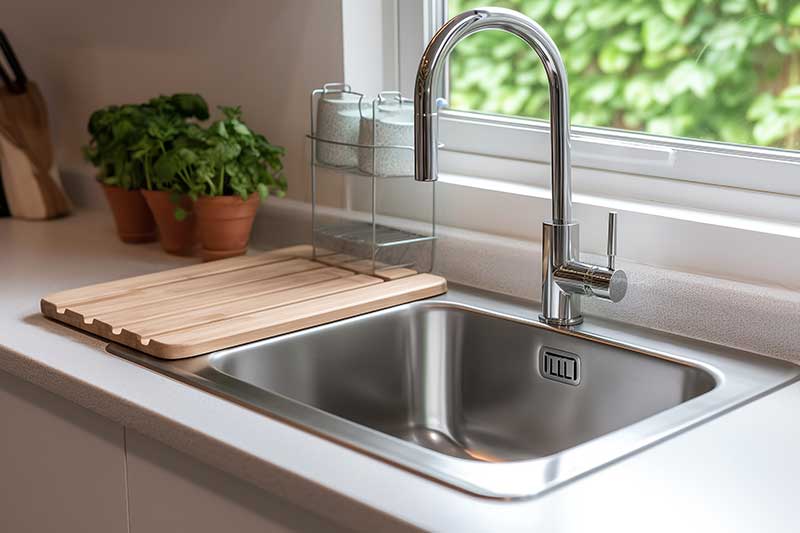The kitchen sink is an integral part of your culinary workspace, serving as the hub for cleaning, food preparation, and dishwashing. Choosing the right kitchen sink can greatly enhance the functionality and aesthetics of your kitchen. In this guide, we will discuss key factors to consider when selecting the perfect kitchen sink to meet your needs and complement your kitchen's design.

1. Sink Material:
The choice of sink material is crucial. Common options include stainless steel, cast iron, composite granite, fireclay, and copper. stainless steel sinks are durable and easy to clean, while composite granite offers a natural stone appearance. Select a material that not only suits your kitchen's style but also withstands the rigors of daily use.
2. Sink Size and Style:
Consider the available space in your kitchen. Single-bowl sinks are great for small kitchens and those with limited counter space, while double-bowl sinks offer more versatility. Additionally, farmhouse or apron-front sinks are trendy and add a touch of rustic charm to your kitchen, while undermount sinks create a seamless, modern look.
3. Bowl Depth:
The depth of the sink bowls matters. Deeper bowls can accommodate larger pots and pans but may require more bending. Shallow bowls are convenient for everyday tasks but might not handle large cookware as easily. Choose a depth that suits your cooking and cleaning habits.
4. Installation Type:
There are various installation options, including drop-in (top mount), undermount, and flush-mount sinks. Your choice should align with your kitchen's design and your preferences. Undermount sinks, for example, provide a sleek and integrated look, while top-mount sinks are easier to install.
5. Number of faucet Holes:
Consider how many holes you need for your faucet, handles, and accessories like soap dispensers or sprayers. Some sinks come with pre-drilled holes, while others allow for customization. Ensure that the sink you choose accommodates your desired faucet and accessories.
6. Accessories and Options:
Many sinks offer various accessories such as cutting boards, colanders, and drying racks. These extras can make food preparation and clean-up more efficient. Explore the available options and determine which ones would best serve your needs.
7. Maintenance and Durability:
Think about the maintenance requirements of the sink material you select. Stainless steel is known for its ease of care, while fireclay may need more attention. Assess the durability of the sink material to ensure it will last for many years.
8. Budget:
Determine your budget and stick to it. Kitchen sinks come in a wide price range, so it's essential to find one that suits your financial constraints while meeting your requirements.
9. Water Efficiency:
Some kitchen sinks are designed with water-saving features. Look for models that offer efficient water usage to contribute to water conservation and lower utility bills.
Selecting the right kitchen sink is a significant decision that can greatly impact your kitchen's functionality and style. By considering factors such as sink material, size, style, bowl depth, installation type, number of faucet holes, accessories, maintenance, durability, budget, and water efficiency, you can make an informed choice that enhances your culinary space. Whether you opt for a modern stainless steel sink or a classic fireclay design, the perfect kitchen sink will serve you well and add value to your home for years to come.